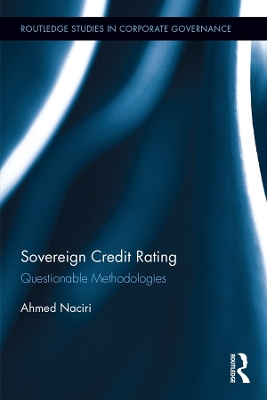Routledge Studies in Corporate Governance
3 total works
An effective system of corporate governance has both internal and external aspects that have to be sufficiently responsive if governance is to succeed. In this book, Ahmed Naciri examines these two core aspects or the latest buzzword in business and management theory.
Internal aspects include ownership structure, the board of directors and committees, internal control, risk management, transparency and financial reporting. External aspects can either be market-oriented, or can take the form of credit ranking, and/or social requirements. Due to the original orientation of the Sarbanes/Oxley Law, concentrating solely on financial disclosure and given its decisive and tremendous influence on all other similar corporate governance legislations all over the world, most writings on corporate governance have dealt with solely internal corporate governance mechanisms. This book aim is to fill up the gap by using a systemic approach and giving a global picture of the corporate governance theoretical foundations, mainly by putting the emphasis on its double dimension: internal and external.
The current degradation of sovereign balance sheets raises very real concerns about how sovereign creditworthiness is measured by credit rating agencies. Given the disastrous economic and social effects of any downgrade, the book offers an alternative and calls for more transparency about the quantitative measures used in calibrating the rating process and how sovereign ratings are validated. It argues that oversight is required and procedures improved, including subjecting methodologies of assessing default to more standardization and monitoring.
Sovereign Credit Rating explains the process of sovereign creditworthiness assessment and explores the consequences of possible inaccuracies in the process. Developing an innovative new methodology to assess ratings accuracy, it shows that the announcement of each rating action by the major credit rating agencies show alarming inconsistencies.
Written by an internationally recognized author and professor, this unique book will be of interest to researchers and advanced students in corporate governance, accounting, public finance and regulation.
Credit rating agencies play an essential role in the modern financial system and are relied on by creditors and investors on the market. In the recent financial crisis, their power and reliability were often questioned, yet a simple rating downgrade could threaten to bankrupt a whole country.
This book examines the governance of credit rating agencies, as expressed by their ability to fairly, ethically and consistently assign higher rates to issuers having lesser default risks. However, factors such as the drive for increased revenue and market share, the inadequate business model, the inadequate methodology of assessing risk, opacity and inadequate internal monitoring have all been identified as critical governance failures for credit agencies. This book explores these issues, and proposes some potential solutions and improvements.
This will be of interest to researchers and advanced students of corporate finance, finance, financial economics, risk management, investment management, and banking.


